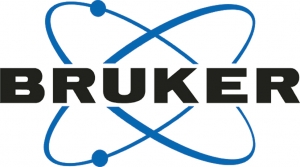Corporate Workshop
Home
> Program > Corporate Workshop

- Code / Date
- CW-1 / March 29 (Thu) 11:30-12:40
- Speaker
- ShinKwon Kang
- Affiliation
- Application Manager, Bruker Daltonics Korea
- Title
- The timsTOF Pro with PASEF: Digging deeper into the proteome with record-breaking speed, sensitivity and robustness.
- Abstract
-

- Code / Date
- CW 1-2 / March 29 (Thu) 11:30-12:40
- Speaker
- JinNyoung Choi
- Affiliation
- Application Chemist, Bruker Daltonics Korea
- Title
- Improvements in Mass Spectrometry Imaging for the Molecular Analysis of FFPE Tissue Sections
- Abstract
-

Rm#422, Industry-University Research Bldg., Yonsei University
50 Yonsei-ro, Seodeamoon-gu, Seoul 03722 Korea
Tel : +82-2-393-8328 Fax : +82-2-393-6589 E-mail : admin@khupo.org
COPYRIGHT ⓒ 2018 KHUPO. ALL RIGHTS RESERVED.
